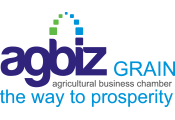
Food Safety & Food Hygiene
International food safety standards
South African silos can now export grain that fully meets international food safety standards. The system of South African Good Governance Practices regarding food safety is based on the HACCP (Hazard Analysis and Critical Control Point) system. Export silos are registered at the National Department of Agriculture as a food business operators (FBO) after the required standards and procedures have been phased in at all the silos in accordance with the statutory Food Safety Act of 2005. The silos are audited by PPECB (Perishable Products Export Control Board) to evaluate processes and maintaining documentation on silo level.
Local buyers benefit from food safety
Worldwide processors and consumers prefer to make purchases from companies that can provide peace of mind that their food products comply with high standards. Local buyers of grain and oilseeds thus have the assurance that the innovations in safety, health and environmental quality practices applied by grain handlers and providers to improve safety and efficacy also benefit them. Agbiz Grain members make the following contributions to the buyer's efforts:
- Increase their own food safety initiatives
- In addition to inspections by regulatory authorities, and
- Promote international trade by increasing confidence in food safety.
Focus on prevention
The HACCP-based food safety system focuses on prevention rather than end-product testing and has the following advantages:
- Dangers at every stage of handling is analyzed
- Compatible with the implementation of systems such as the ISO 9000 series
- Most effective method of quality management to maximize food safety
- Multi-disciplinary approach to Food Safety
- Determine at what point controls are critical for food safety
- Monitor and manage identified as well as potential food safety hazards
- Provide mechanisms for the recall of products that may not be safe for consumption
- Ensure hygiene and housekeeping of a good standard
- Ensure traceability of products
Protein content related to moisture: Implications for South Africa
In South Africa, the protein content of grain, and specifically wheat, is reported on a 12% moisture level. This is different from most other countries, where protein content is reported on a dry matter (DM) basis. This difference has the potential to cause misinterpretation of results in the industry and thus necessitates a common understanding.
DownloadA new era in commodity fumigation in South Africa
South Africa is a signatory member of the Montreal Protocol, an international treaty seeking to phase out the use of methyl bromide, among other chemicals, which have the potential to deplete the ozone layer. South Africa is now in the final year of phasing out methyl bromide for use in structural and commodity fumigation and the registration for these applications will be cancelled at the end of 2022.
Download 